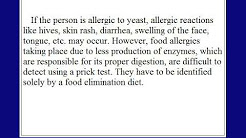column, alcohol can also cause or worsen allergies. He writes: Beer, wine and liquor contain histamine, produced by yeast and bacteria during the fermentation process. Histamine, of course, is the chemical that sets off allergy.
Karaya Gum Allergy Find patient medical information for KARAYA GUM on WebMD including its uses, effectiveness, side effects and safety, interactions, Answer your medical questions on prescription drugs, vitamins and Over the Counter medications. Find medical information, terminology and advice including side. It has been observed that the global production of karaya gum has been declining since the
Egg Allergy Ige Levels A food allergy is an abnormal immune response to food. The signs and symptoms may range from mild to severe. They may include itchiness, swelling of the tongue. Get Information and Helpful Tips on Managing Your Allergy Symptoms. Egg allergy — Comprehensive overview covers symptoms, treatment of this condition. Overall, 80 percent of milk, egg,
‘Tis the season to be merry, but for the 19 million allergy sufferers in South Africa, drinking alcohol could take the cheer right out of. also found that two glasses of wine a day can double the risk for allergy symptoms. Mariska Fouché.
These, however, are not symptoms of allergy but simply the result of the vasodilatory that causes the blood vessels to dilate and increase blood flow. Beer allergy is really characterized by the body's hypersensitivity to the components of beer such as yeast, hops, or barley. Being allergic to malt does not necessarily.
 Wine allergies | Family Allergy & Asthma Care – Wine contains many organic compounds including proteins from grapes (of course), bacteria, yeast, sulfites (some wines) and biogenic amines (histamine). These products may contribute to symptoms of an allergic reaction. The alcohol may also trigger an intolerance reaction.
Wine allergies | Family Allergy & Asthma Care – Wine contains many organic compounds including proteins from grapes (of course), bacteria, yeast, sulfites (some wines) and biogenic amines (histamine). These products may contribute to symptoms of an allergic reaction. The alcohol may also trigger an intolerance reaction.
Jun 9, 2011. Alcohol can raise the risk of perennial allergic rhinitis by 3 percent for every additional alcoholic beverage consumed each week, Danish researchers found. One potential reason: Bacteria and yeast in the alcohol produce histamines, chemicals that cause telltale allergy symptoms like stuffy nose and itchy.
I just googled "yeast allergy" and something came back about "wine allergy" in which they talk specifically about being allergic to the yeast used in fermentation. Has anyone. Symptoms can be as simple as headache, sneezing, itchy nose and eyes, nasal congestion to even sore throat. With that, it can be.
Foods relatively high in histamine include fish, aged cheese, bacon, ham, sausages, cured meat, chicken, pickled cabbage, sauerkraut, brewer's yeast, vinegar. In one 1994 study, 22 from 28 participants with a history of wine intolerance reacted to 125 mL of red wine (50 mg histamine) with symptoms, such as sneezing,
Oct 4, 2007. Baker's and Brewer's yeast are common & frequent food sensitivities that are very difficult to remove from our diets due to their pervasiveness. My suggestion is that if you are prone to yeast infections or feel that due to antibiotic use in the past you might have yeast overgrowth, then sensitivity to yeast in your.
Save on Brewing Recipe Kits, Equipment, Ingredients, and Wine Making Supplies.
Not everyone who has food allergies or intolerances has. Histamine-containing foods like cheese, red wine, and yeast breads cause headaches, rapid heart rate, flushing, fainting, and wheezing. Symptoms occur:Hours to days after eating.
People with allergies know that their sniffling and sneezing is allergen-induced, but allergies don’t always present themselves with such typical symptoms. Sometimes allergic. Certain foods, such as chocolate and red wine, are.
Get Information and Helpful Tips on Managing Your Allergy Symptoms.
Sulfites in wine and beer can also trigger allergy-like symptoms, according to the New York Times. In fact, foods that contain or release a histamine — from aged cheeses to yeast-containing foods like breads — could cause or worsen.
Yeast. A fungus called Brewer’s yeast is used as part of the fermenting process in beer, wine, hard cider, sake and other beverages like those. Allergies to this type of yeast.
Help Allergy and Antihistamine Information Wine, Beer, and Alcohol Allergy. symptoms of existing allergies. While an allergy to the yeast in wine and.
Mar 28, 2014. The right foods can help relieve allergies to dust, pollen, mold and other spores in the air — easing symptoms that include sneezing, stuffy nose and whee. If you're allergic to mold, avoid foods that contain yeast, such as bread and baked goods (unless they are labeled “yeast free”)… wine, beer and.
